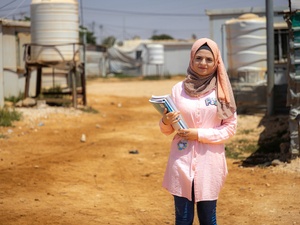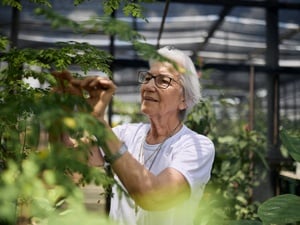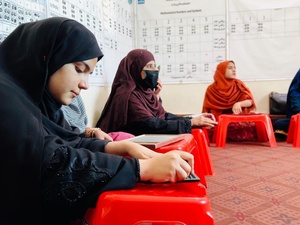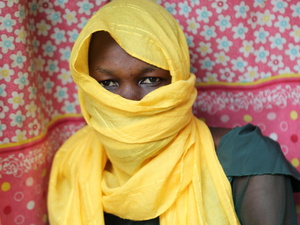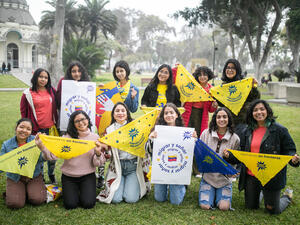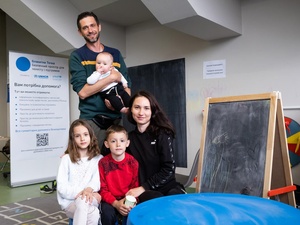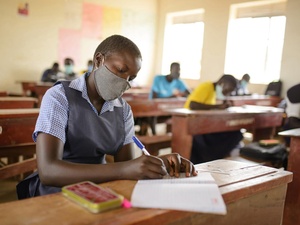New beginning and identity for Afghan girl forced to live as a boy
New beginning and identity for Afghan girl forced to live as a boy
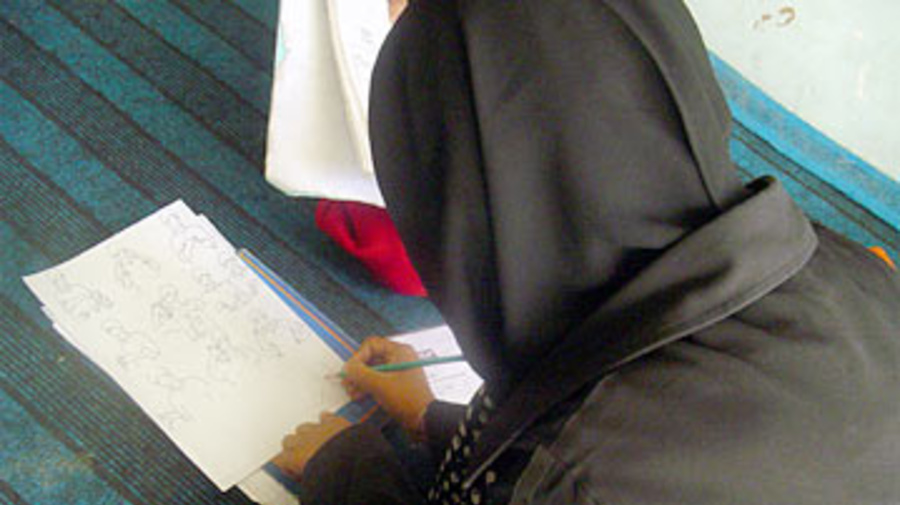
Finally able to earn a living without disguising herself as a boy, Anita is using her drawing skills, developed at a women's shelter in Herat, to illustrate materials for deaf children.
HERAT, Afghanistan, Sept 26 (UNHCR) - She's just sixteen, but has already experienced a lifetime's worth of hardship. An Afghan born to refugee parents in Iran, Anita* was prematurely compelled to take on adult responsibilities and to leave her life as a young girl behind.
When Anita was only eight years old, her drug-addicted father, who fled Afghanistan's civil war in 1983, began insisting that she find a job to support the family. Since work was not an option for young girls, Anita pretended to be a boy, and began working as a labourer on construction sites.
"During those years, I lost the feeling of being human, and I forgot that I was a woman," she recalls, sitting in her new home in the Afghan city of Herat. "I changed from being little Anita to being Dash Reza [Brother Reza]. I worked as a boy among boys, and lived for years in the same room as young boys."
Soon she was providing the family's only income, while also taking care of her younger sister and brother. Her father took whatever money she earned, and would beat her if she returned home empty handed.
As Anita got older, her father began looking for new ways to profit from his daughter.
"At the age of fourteen, my father forced me to marry an old man who gave him money. I was married for one year, and my life was worse than in my father's house. When I left, my father would not accept me and tried to force me to return to my husband."
Anita decided to leave home and fend for herself. She took her younger sister with her, fearing what would happen to her if left behind.
"After fleeing, I lived in a hotel with my sister. We were both dressed in men's clothes, because women are not allowed to stay in hotels on their own."
Despite their caution, the sisters were identified as Afghans by Iranian law enforcement officials, and, since they did not have the required documents, were returned to Afghanistan.
At the border, where staff of the UN refugee agency and the Afghan Ministry of Refugees monitor arrivals with a view to assisting vulnerable returnees, the two unaccompanied minors were singled out as in need of support. They were provided accommodation in a shelter for women and adolescent girls in Herat, run by an Afghan non-governmental organization with the support of Medica Mondiale and UNHCR.
Residents in the shelter are provided training in basic skills such as reading, writing and tailoring. Psychological counselling is also available. Female case-workers stay with the women and girls who, because of the often traumatic lives they have led, need time to develop trust and confidence.
Anita's story is similar to that of other Afghan women who escape from violence. Little assistance is available within the country to help single returnee women reintegrate into their former communities, and efforts to combat violence against women are still in the early stages.
During her eighteen months at the shelter, Anita wrote about her experiences and was encouraged to develop her drawing skills. She now has a job with a aid agency illustrating material used by deaf children at a nearby school, and has completed a book called "Tolo," or "Dawn," which she hopes to get published.
"During the time I lived in the shelter, I began to better understand who I was. It helped me change from a pretend boy to a real girl. Now my sister no longer calls me 'brother'."
* Not her real name
By Fayaz Siddiqi in Herat, Afghanistan


